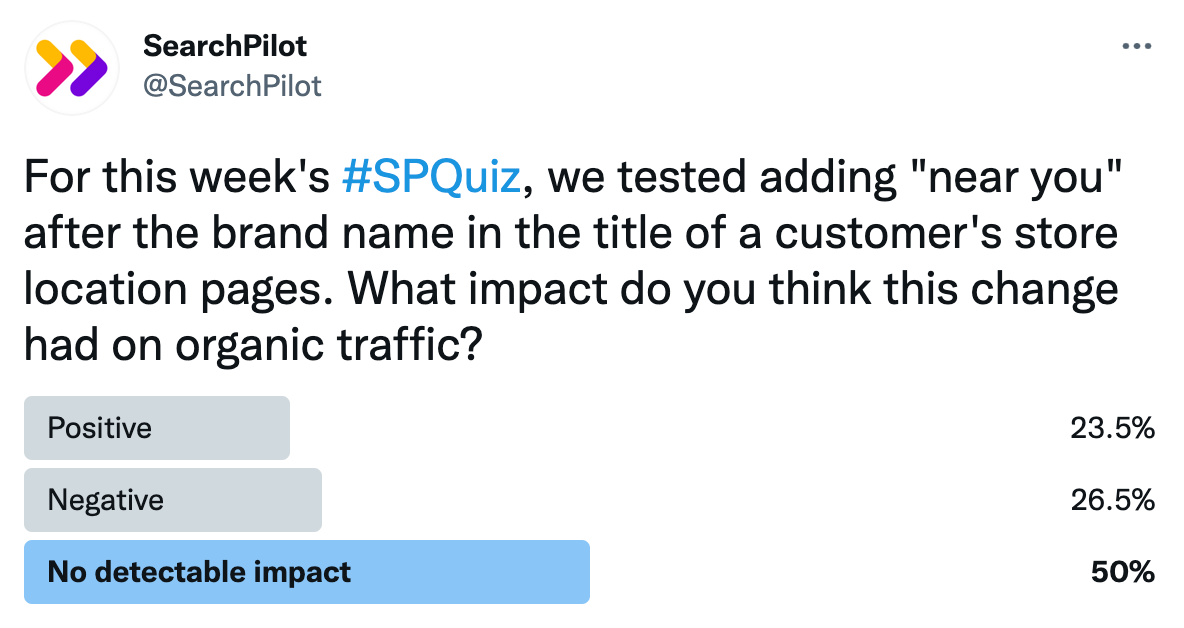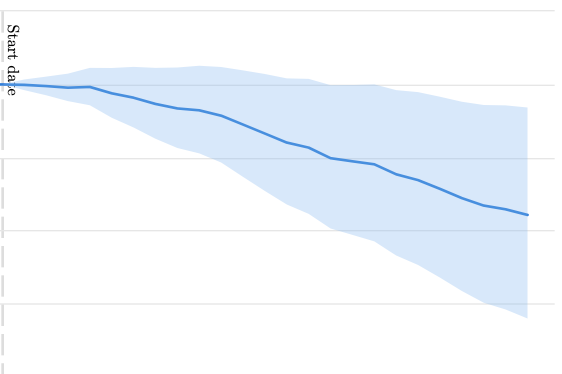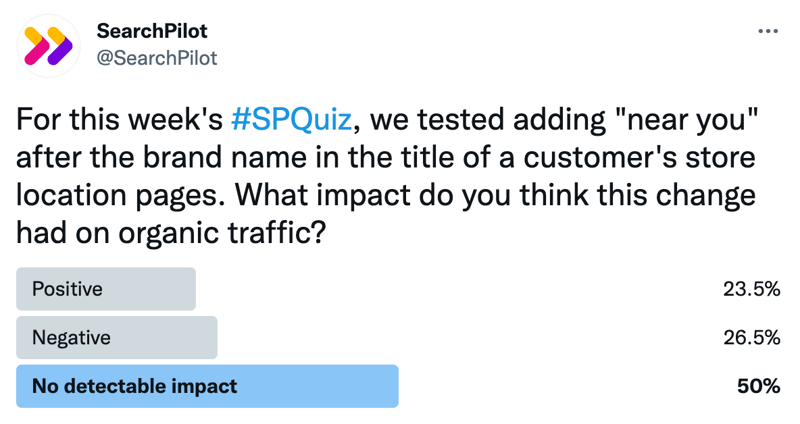Start here: how our SEO split tests work
If you aren't familiar with the fundamentals of how we run controlled SEO experiments that form the basis of all our case studies, then you might find it useful to start by reading the explanation at the end of this article before digesting the details of the case study below. If you'd like to get a new case study by email every two weeks, just enter your email address here.
Earlier this week we put our Twitter followers to the test, asking them to guess the impact to organic traffic when we tested adding the keywords “Near You” to a customer’s title tags. Here’s what they thought happened.

Exactly half of those who voted seem to think this change had no detectable impact on organic traffic. Turns out this test was actually negative! Continue reading to find out the details.
The Case Study:
How often do you find yourself searching for store locations or services near you? Due to everyday usage of location services on our devices, we figure pretty often. Over the years, Google has become better at serving relevant results based on a searcher’s geolocation, connecting them to products or services in their local area.
Aiming to help our customer’s location pages rank for more location-centric queries, we added the keywords “Near You” to their title tags. We hypothesized that this change could improve rankings, maybe not for exact match searches (e.g. [italian restaurant near me]) but for searches looking for products or services within a specific location (e.g. [italian restaurant in ]), or improve click-through rates from the search engine results page as the keywords “near you” might make the listings more relevant to users.
You might be wondering about whether “near me” or “near you” is the better formulation for this kind of thing. While we have previously tested multiple iterations of adding the keywords “Near Me” (versus “Near You”) to the title tags, the formats and hypotheses for those tests were somewhat different - we’ll save that for another case study! One last thing to mention is that this test was run before Google’s recent changes to how they generate title tags for search results.
Here is how our control and variant pages appeared in the search engine results page.
| Control | Variant |
|---|---|
 |
 |
| Control |
|---|
 |
| Variant |
 |
So what exactly was the impact on these pages’ organic traffic when we added those keywords to the title tags? Let’s find out below:

The result of this test was significantly negative with an estimated loss of 2% to organic traffic.
We may have seen a negative result from this test because adding the keywords to the middle of the title tag led to the location’s address being truncated in the search listing. Not being able to view the full address could have made the search result less appealing and deterred users from clicking through to the page.
This test is yet another great reminder that even when a change to your pages’ content, or titles in this case, seems sensible it could yield an unexpected impact to your site’s organic traffic. It’s always better to test and be confident in the impact you could expect than to implement a change and be blindsided by the result.
Stay tuned for more testing insights and don’t forget to follow us on Twitter. For a demo of the SearchPilot A/B testing platform, fill out this form.
How our SEO split tests work
The most important thing to know is that our case studies are based on controlled experiments with control and variant pages:
- By detecting changes in performance of the variant pages compared to the control, we know that the measured effect was not caused by seasonality, sitewide changes, Google algorithm updates, competitor changes, or any other external impact.
- The statistical analysis compares the actual outcome to a forecast, and comes with a confidence interval so we know how certain we are the effect is real.
- We measure the impact on organic traffic in order to capture changes to rankings and/or changes to clickthrough rate (more here).
Read more about how SEO testing works or get a demo of the SearchPilot platform.
